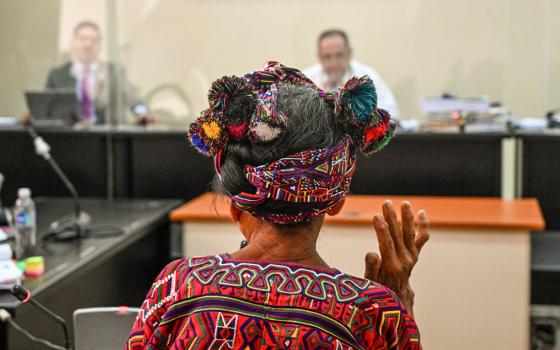The Catholic bishops at their meeting in Baltimore unanimously voted to promote the canonization of the founder of the Catholic Worker movement, Dorothy Day. As David Gibson in this Religion News Service article points out, though they were unable to agree on a statement regarding the economy, the bishops did agree to support sainthood for this controversial figure. A number of bishops spoke up to endorse her candidacy.
What is it about Dorothy Day that could bring all 230 bishops present at this annual meeting to agree on her possible elevation to sainthood? The retired Archbishop of Washington, Cardinal Theodore McCarrick, spoke of her appeal as a model for the street people, drug abusers and other downtrodden members of society. Bishop William F. Murphy of Rockville Centre, N.Y., spoke of his personal relationship to Day and what it meant to him. Boston's Cardinal Sean O'Malley highlighted Dorothy Day's commitment to social justice and the care of the poor.
Only Chicago's Cardinal Francis George found it necessary to tie Dorothy Day to the hierarchy's battle with the Obama administration over contraception and the bishops' attempt to relate it to religious freedom. On the other hand, New York's Cardinal Timothy Dolan wisely noted that both liberals and conservatives found things to love and hate about Dorothy Day, which in itself likely means she has done something right.
I was in the seminary during the protests against the Vietnam War amid a resurgence of pacifism among many active Catholics. Dorothy Day was the darling of many in the seminary during that period. One of the criticisms of Day was that she was an avowed pacifist during the Second World War when almost no one was thinking in those terms. I think it demonstrates that she was always true to what she believed. She inspired others by her outspokenness and her determination to pursue what she believed regardless of what those around her might be thinking.
What strikes me about Dorothy Day is that she never waited around for the bishops to tell her what to do or how to behave. Her apostolate to the poor and those in need on the streets of New York came from who she was within herself. What she had to say about peace and nonviolence was not something preapproved by some committee of bishops. The truth is, not many bishops would have seen her as a potential saint during the peak of her ministry.
In this way, I believe Dorothy Day has much in common with other saints and other important figures in history whose greatness was only recognized many years after their active life's work. Some examples of those who struggled against authority in order to be heard include the Old Testament prophets Joan of Arc, Galileo and many, many more.
Jesus himself said, "A prophet is not without honor, except in his own country."
Consider Sr. Paul, who challenged the "first pope." He did not exactly follow the model of blind obedience.
I believe a saint is one who goes beyond what he or she is told in order to expand our understanding of faith, love and service to those around us. All of us are called to this kind of sanctity. We will make many mistakes along the way, but the notion that therefore we need to do just as we are told is not a recipe for a better church. The bishops, then, have an enormous responsibility not to stifle the movement of the spirit within the people of God.
It is encouraging to see the bishops speak up for this remarkable woman in such an overwhelming manner. It is unfortunate that it takes so long for us to recognize holiness in our midst.




